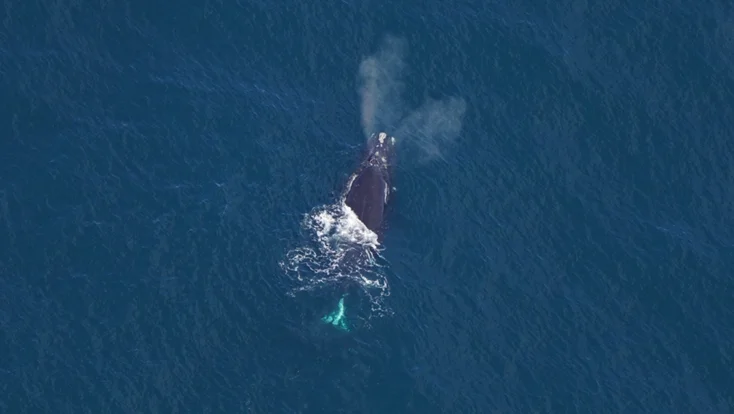
Over 75 Endangered Right Whales Spotted in Massachusetts Shipping Lanes
In a breathtaking sighting that underscores the ongoing battle for marine conservation, more than 75 North Atlantic right whales have been spotted in the shipping lanes south of Massachusetts. This critically endangered species, with only 370 individuals remaining, faces grave threats from ship strikes and entanglements in fishing gear.
The New England Aquarium reported these remarkable sightings, prompting NOAA Fisheries to designate a voluntary Slow Zone for mariners. The call to action urges vessels to reduce their speed to 10 knots or less in these busy lanes to prevent tragic collisions. The recent sightings included a staggering aggregation of over 60 right whales observed on April 23, followed by a second survey just days later, revealing an additional 40 whales.

Among those seen was a notable female, affectionately known as Calvin (Catalog #2223). This resilient individual has an extraordinary history, with eight known entanglements and the heartbreaking loss of her mother to a vessel strike when she was just a calf. Associate Research Scientist Katherine McKenna expressed relief at Calvin's return after three years of absence, highlighting her story as a testament to the survival struggles faced by these majestic whales.
As the whales were sighted foraging in shipping lanes—a risky behavior—they risked becoming victims of lethal boat strikes. Ships navigating these lanes were alerted by the survey team, allowing them to safely adjust their courses. "While the situation was concerning, our team's swift actions prevented possible tragic outcomes," noted Orla O’Brien, leading the aerial survey efforts.
From December to date, the New England Aquarium has conducted 32 aerial surveys, tallying over 168 individual right whales documented in southern New England waters, revealing that this area is crucial to their survival. This species historically thrived in these waters, and concerted efforts must be made to ensure their habitat remains safe.
This peak season for right whale sightings calls for collective action among researchers, industries, and regulators. Marine wildlife advocates emphasize the importance of adaptability as right whales adjust their feeding strategies in response to changing environmental conditions.
The survival of the North Atlantic right whale is a reflection of our commitment to marine preservation. As we witness these magnificent creatures gathering in increasingly dangerous environments, it raises a pressing question: What are we willing to sacrifice to ensure their survival?
We invite you to share your thoughts in the comments below. How can we together protect these gentle giants of the ocean?